Climate change has become a major topic in our world today. With the rise of global warming, it is important for us to take action and make changes to protect our environment. As individuals, we have the power to make a difference by making small changes in our daily lives. However, with so much information out there, it can be hard to know where to start.
That’s why we’ve put together this guide on the most asked questions related to climate change. From understanding the impacts of global warming on our planet, to what we can do as individuals and communities, this guide aims to provide answers and inspire action towards protecting our environment for future generations. Join us on this journey towards sustainability and a better future for all.
Introduction
Climate change is one of the most pressing issues of our time. From the melting of polar ice caps to the increase in natural disasters, the impacts of climate change are visible in our daily lives. But what exactly is climate change? Is it synonymous with global warming? And what are the causes and effects of this phenomenon? We aim to explore these questions and discuss what can be done to prevent further damage to our planet. We will also take a closer look at the challenges and benefits of addressing climate change, as well as the actions being taken by individuals and governments worldwide. Finally, we will provide tips on how you can make a difference in the fight against climate change. So, let’s get started by defining some key terms.
Climate change refers to a long-term shift in global temperature patterns that is largely attributed to human activity. The burning of fossil fuels (oil, coal, and gas) has led to an increase in the concentration of greenhouse gases, such as carbon dioxide, in the atmosphere. These gases trap heat from the sun, causing a rise in global temperatures. This phenomenon is commonly referred to as global warming. However, while global warming is a component of climate change, it is not the same thing. Climate change encompasses a range of effects, including more extreme weather events, changes in rainfall patterns, and the loss of biodiversity.
The impacts of climate change are many and varied. Rising sea levels threaten coastal cities and small island nations. Droughts and the melting of glaciers cause water scarcity in many regions. Changes in temperature and precipitation patterns can alter crop yields, leading to food insecurity and famine. Natural disasters, such as hurricanes, floods, and wildfires, have become more frequent and intense, causing damage to homes, infrastructure, and communities.
“A nation that destroys its soils destroys itself. Forests are the lungs of our land, purifying the air and giving fresh strength to our people.” Franklin D. Roosevelt
Preventing climate change requires action on a global scale, and it will involve significant costs and challenges. However, the benefits of taking action are also numerous. Addressing climate change presents an opportunity to create a cleaner, healthier, and more sustainable world, with benefits including clean air and water, reduced fossil fuel dependency, and increased economic growth. But there are also challenges to overcome, such as resistance from industries that rely on fossil fuels and the political will to make significant policy changes.
Fortunately, there are a variety of actions being taken to address climate change. International agreements, such as the Paris Agreement, have set targets for reducing greenhouse gas emissions. Governments and businesses are investing in renewable energy sources, such as solar and wind power, to replace fossil fuels. Individuals can also make a difference by reducing their carbon footprint through actions such as driving less, eating less meat, and using energy-efficient appliances.
Climate change is a complex and urgent issue that requires our immediate attention. By understanding the causes and effects of climate change, and taking action to prevent further damage, we can create a more sustainable future for ourselves and the planet.
“Clean air and water, and a livable climate are inalienable human rights. And solving this crisis is not a question of politics. It is our moral obligation -if, admittedly, a daunting one.” Leonardo DiCaprio
Climate change refers to the long-term changes in temperature, precipitation, and wind patterns across the world, primarily caused by human activities such as burning fossil fuels.
But why should we care? Because the consequences of climate change are enormous and far-reaching. Rising sea levels, more frequent extreme weather events, and diminishing biodiversity are just a few of the effects we can expect to see over the coming decades unless we take action. And it’s not just a problem for future generations – it’s affecting people and wildlife right now.
The good news is that it’s not too late to make a difference. We can all take steps to reduce our carbon footprint, such as walking or taking public transport instead of driving, using energy-efficient appliances, and eating less meat. But we also need systemic change – governments and businesses must take bold action to transition to renewable energy and invest in sustainable technologies. The road ahead may not be easy, but we cannot afford to ignore this vital issue. We owe it to ourselves, our children, and the planet to act now and create a sustainable future for all.

What is climate change?
Climate change refers to the significant long-term changes in the Earth’s climate patterns caused by human activity, such as the burning of fossil fuels and deforestation. The consequences of climate change are far-reaching and can be devastating: extreme weather events, rising sea levels, and loss of biodiversity are just a few examples. However, it’s not all doom and gloom – there is much we can do to mitigate the effects of climate change and ensure a sustainable future for ourselves and the planet.
The first step recognizes the problem and understanding the impact our actions have on the environment. We need to be mindful of our carbon footprint and take steps to reduce it, such as using public transport, consuming less meat, and switching to renewable energy sources. We must also advocate for policy changes at both the global and local levels that promote sustainability and support the transition to a low-carbon economy.
The good news is that there is growing awareness and momentum around the issue of climate change, with individuals, businesses, and governments all taking action to address it. By working together, we can make a difference and ensure that future generations inherit a habitable and thriving planet. So let’s roll up our sleeves, get informed, and take action to combat climate change – our planet is counting on us!
What is the difference between climate change and global warming?
Are you confused about the difference between climate change and global warming? Don’t worry, you’re not alone! Many people use these terms interchangeably, but they actually refer to two different phenomena.
First, let’s define global warming. This term specifically refers to the increase in the Earth’s average surface temperature due to human activities, such as the burning of fossil fuels. This rise in temperature has been observed since the late 19th century, and is now widely accepted as a real and pressing issue.
Climate change, on the other hand, encompasses a broader range of changes that are happening across the planet due to the warming of the Earth’s surface. These changes can include rising sea levels, more frequent and severe weather events, and shifts in ecosystems and wildlife populations. In short, global warming is just one aspect of the larger phenomenon of climate change.
Understanding the distinction between global warming and climate change is important because it helps us to understand the complexity of the issue at hand. It’s not just a matter of keeping our planet from getting too hot – we need to consider all of the ways in which our actions are impacting the Earth’s delicate ecosystem. This includes reducing our carbon footprint by using clean energy sources and reducing our consumption of animal products, as well as taking steps to mitigate the effects of climate change that are already happening, such as investing in infrastructure that can withstand more extreme weather events.
The good news is that by taking action, we can help to slow down the pace of climate change and protect our planet for future generations. We have the tools and knowledge at our disposal – now it’s up to us to act. So let’s all make a commitment to reduce our carbon footprint, support clean energy, and work together to create a more sustainable future for ourselves and for the planet!
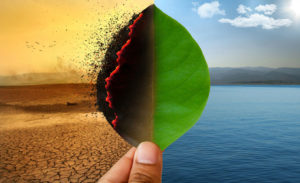
What are the causes of climate change?
We are all aware that climate change is the defining issue of our time and it’s happening right now. It’s a critical problem that affects every living thing on this planet. But have you ever wondered what causes this impending catastrophe? Let me tell you. Foremost, human activities are the primary cause of climate change – specifically, the burning of fossil fuels like oil, gas, and coal. These fuels power our homes, our transportation, our industries, and our economies. When we burn them, they release harmful greenhouse gases, like carbon dioxide, into the atmosphere. And these gases trap heat, leading to a rise in temperatures.
The rise in temperature is melting the polar ice caps, causing sea levels to rise and bringing about dangerous weather changes. But it’s not just the burning of fossil fuels causing the Earth’s temperature to increase. The destruction of forests, deforestation, and conversion of natural landscapes into agricultural and urban areas has also contributed to the greenhouse gas emission significantly. Other human activities that contribute to climate change include transportation, agriculture, and manufacturing. It’s essential to understand that climate change is a complex issue, a result of numerous contributions and interactions that cannot be pinpointed to a singular cause.
However, there’s no need to lose hope. Understanding the sources of climate change is the first step to fighting it. Governments all around the world are working on curbing greenhouse gas emissions, investing in clean and sustainable forms of energy and creating policies to reduce our dependence on fossil fuels. As individuals, we can also take steps to reduce our carbon footprint. Simple changes like choosing public transport over personal vehicles; using energy-efficient light bulbs, cycling, or walking instead of driving, participating in local clean-ups, and supporting eco-friendly businesses and brands, all collectively make a positive impact.
It’s up to all of us to take action on climate change. The cause is apparent, and the time to act is now. We owe it to ourselves, future generations, and our planet to make immediate, dramatic changes to our behavior and choices. It’s a long road ahead, but we need to work together, remain conscious of our actions and decisions, and make choices that reduce our impact on the environment. Change begins with us, and we have the power to make a difference. Let’s do it – one step at a time.
What are the effects of climate change?
Climate change is not just a looming threat for our planet – it is a reality that is already having profound, far-reaching consequences. Rising temperatures, more frequent extreme weather events, and changing precipitation patterns are just a few of the effects being felt worldwide. These changes are disrupting ecosystems, threatening food security, and leading to more frequent natural disasters.
One of the most alarming effects of climate change is the loss of biodiversity. As temperatures rise and habitats shift, many species are struggling to adapt. This has led to declining populations, and in some cases, outright extinction. This loss of biodiversity has ripple effects throughout ecosystems, disrupting food chains and diminishing the services that nature provides, such as pollination and water purification.
Another major issue arising from climate change is the threat to food security. Changes in temperature and precipitation are already impacting crop yields, particularly in vulnerable regions such as sub-Saharan Africa. With the world’s population projected to continue growing, it is imperative that we take action to safeguard global food supplies.
The effects of climate change are also being felt in our oceans, which are becoming more acidic due to the absorption of carbon dioxide. This has serious consequences for marine life, with many species struggling to build or maintain their shells or skeletons. The warming of oceans is also causing sea levels to rise, increasing the risk of flooding and extreme weather events for coastal communities.
Of course, the effects of climate change are not felt equally across the globe. Developing countries and vulnerable populations are typically hit the hardest, further exacerbating existing inequalities. Therefore, it is so critical that we take action now to reduce our greenhouse gas emissions and mitigate the worst impacts of climate change.
But despite these challenges, there is reason for hope. We have the knowledge and the technology to curb our impact on the planet and build a more sustainable, equitable future for all. By investing in renewable energy, implementing more sustainable agriculture practices, and working to protect vulnerable ecosystems, we can create a more resilient world. The effects of climate change are serious, but if we act now, we can prevent them from becoming catastrophic.
“Saving our planet, lifting people out of poverty, advancing economic growth… these are one and the same fight. We must connect the dots between climate change, water scarcity, energy shortages, global health, food security and women’s empowerment. Solutions to one problem must be solutions for all.” Ban Ki-moon
What can we do to prevent climate change?
As citizens of this planet, we have an enormous responsibility to protect our environment from the devastating impacts of climate change. It is our shared responsibility to ensure that we take action towards reducing our carbon footprint. But where do we even begin? Well, the good news is, there are plenty of things we can do to help fight climate change.
First, let’s start with the basics – reduce, reuse, and recycle. We must attempt to reduce the amount of waste we produce by being more mindful of the products we buy and their packaging. We should also strive to reuse items or choose to buy recycled products. Recycling should also be a priority, as this helps to reduce the amount of waste that enters landfills.
Secondly, we need to be mindful of our energy usage. Simple actions like switching off lights when leaving a room, unplugging electronics when not in use, and using energy-efficient appliances can go a long way in reducing our carbon footprint. Additionally, choosing to switch to renewable energy sources like solar or wind power can have a significant impact on reducing our dependence on fossil fuels.
Thirdly, we need to make changes in our daily habits. Consider walking or cycling instead of driving to reduce carbon emissions from transportation. Eating more plant-based meals or reducing meat consumption can also have a positive impact on the environment. When making purchases, choose local and seasonal produce to reduce carbon emissions from transportation.
Lastly, we must advocate for change on a larger scale. This can include supporting political candidates who prioritize climate action, educating others about the impacts of climate change, and advocating for policies that reduce greenhouse gas emissions.
Every small action we take towards fighting climate change can have a significant impact. It is up to us to make a conscious effort to protect our planet for future generations. Let’s come together and create positive change towards a more sustainable future.
How much will it cost to prevent climate change?
We’re at a crucial point in history and we cannot ignore the cost of preventing climate change. But let’s shift our perspective from looking at it as a burden to an opportunity for a better future. Yes, it may require a significant investment, but the benefits will far outweigh the costs. The Intergovernmental Panel on Climate Change (IPCC) estimates that in order to limit global warming to no more than 1.5℃, we need to invest around 2.4 trillion dollars globally each year until 2035. But what would the cost be of taking no action and facing the consequences of climate change? The answer is far greater. Inaction will lead to widespread calamities such as natural disasters, droughts, food shortages, and sea-level rise, costing the world economy 10s of trillions of dollars. Moreover, the economic benefits of tackling climate change are immense – it will create new job opportunities, spur innovation and lead to a cleaner, healthier environment.
Investing in solutions such as renewable energy, electrification, and more sustainable agriculture could prove to be a sustainable solution in the long-run. Transitioning to cleaner energy sources is also likely to reduce the occurrence of severe weather events and deadly heatwaves, which worsen air pollution-related diseases such as asthma and heart disease, resulting in significant healthcare costs. Energy transition is also essential for global security, as the dependence on fossil fuels can lead to political instability and conflicts.
Climate action doesn’t just benefit us, but also the millions of species that we share the earth with. Climate change is already causing mass extinctions, which can have immeasurable effects on the ecosystem. Acting now to protect our planet is the moral duty of our generation.
Therefore, it is our responsibility to take action and prevent climate change. Yes, it will require financial investment, but it is an investment in our future. We have the opportunity to create a cleaner environment, new job opportunities, and healthier communities. The cost of inaction is far greater than the cost of climate action. It is time to turn the challenge of climate change into an opportunity for transformative change. Let’s take action and make a difference.
What are the benefits of preventing climate change?
As we look around the world today, we can clearly see the harmful effects of climate change. From rising sea levels and extreme weather patterns to the depletion of natural resources, the impact of this global challenge is far-reaching and profound. But it’s not all bad news – far from it, in fact. There are countless benefits that come from preventing climate change, and now is the time for action.
One of the most immediate benefits of preventing climate change is preserving our environment. By reducing our carbon footprint and embracing more sustainable practices, we can protect the natural landscapes that are so essential to our wellbeing. This includes everything from safeguarding our forests and oceans to preventing air pollution in our cities and towns.
Preventing climate change also has a significant impact on public health. By making changes to the way we live, work, and travel, we can reduce the amount of harmful emissions that are released into the atmosphere. This, in turn, leads to cleaner air and water, improved food production, and a reduction in the number of illnesses caused by environmental pollution.
Another benefit of preventing climate change is improving the economy. By investing in renewable energy sources like wind and solar power, we can create new jobs and boost local economies. In addition, by reducing our dependence on fossil fuels, we can reduce the risk of economic instability caused by fluctuating oil prices and supply shortages.
Finally, preventing climate change is essential for the future of our planet. By taking action now, we can ensure that future generations have access to the same natural resources that we enjoy today. This includes everything from clean air and water to fertile land and thriving ecosystems.
So what can we do to prevent climate change? The answer is simple: we need to take action. Whether it’s by driving less, reducing our meat consumption, investing in renewable energy sources, or advocating for policies that support sustainability, there are countless ways that each of us can make a difference. And by working together, we can create a brighter, more prosperous future for ourselves and for generations to come. So let’s get started – the benefits of preventing climate change are clear, and the time for action is now!
“On an increasingly crowded planet, humanity faces many threats – but none is greater than climate change. It magnifies every hazard and tension of our existence.” Prince Charles
What is being done to prevent climate change?
The rising temperatures, melting ice caps, and natural disasters happening all across the world are threatening our planet. But don’t lose heart – there is hope. A lot is being done to prevent climate change and protect our planet. Scientists, governments, businesses, and communities are coming together to work towards a sustainable future. Renewable energy sources like wind, solar, and hydro power are being developed and used more widely. Electric vehicles are becoming more popular and accessible, reducing the need for fossil fuels. Buildings and homes are being designed and constructed to be more energy-efficient and sustainable, reducing emissions and reducing our collective impact on the environment.
Governments and businesses are also taking action. Many are setting ambitious goals to reduce emissions and move towards more sustainable practices. The Paris Agreement, signed by nearly every country in the world, aims to limit the global temperature rise to well below two degrees Celsius. Companies are making changes in their supply chains and production processes to minimize their environmental impact. And consumers are becoming more mindful of their environmental choices, opting for sustainable products and services.
However, there is still a lot of work to be done. Climate change is a complex issue that requires collective action from everyone. Individuals can make a difference by reducing waste, conserving energy, and making sustainable choices in their daily lives. Supporting politicians and policies that prioritize the environment is also crucial.
The good news is that we have the technology, resources, and knowledge to make a difference. And through collective action, we can create a better future for ourselves and our planet. So let’s stay motivated and keep pushing towards a sustainable, low-carbon future. Together, we can make it happen.
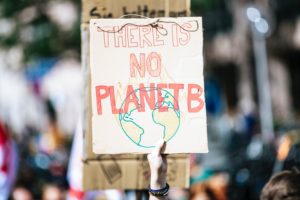
What can I do to prevent climate change?
Do you want to make a difference and prevent climate change? The good news is that you can! Even small actions can have a huge impact on our planet. First, reduce your carbon footprint by using public transportation, biking or walking instead of driving alone. Take shorter showers and turn off the lights when you leave the room.
Secondly, try eating more plant-based meals to reduce your consumption of meat and dairy products. Did you know that producing one kilogram of beef emits as much greenhouse gases as driving a car for three hours?
Lastly, educate yourself, your friends and your family on the topic of climate change. By spreading awareness and knowledge, you can inspire others to take action as well. Together, we can combat climate change and create a more sustainable future. So, don’t wait any longer – start making a difference today!
How can going vegan help climate change?
Going vegan is not only a smart decision for one’s own health, but it can also have a profound impact on the health of our planet and its climate. Animal agriculture is one of the largest contributors to global greenhouse gas emissions, and by eliminating the consumption of animal products, we can significantly reduce our carbon footprint. In fact, the United Nations estimates that animal agriculture is responsible for a staggering 14.5% of global greenhouse gas emissions, more than the entire transportation sector combined. By choosing to adopt a vegan lifestyle, you are taking a powerful stance in the fight against climate change.
Not only does animal agriculture contribute to greenhouse gas emissions, it is also a leading cause of deforestation, water pollution, and loss of biodiversity. The production of meat and dairy products requires vast amounts of land, water, and other resources, which often leads to the destruction of natural habitats and ecosystems. By foregoing animal products, we can reduce the demand for these resources and help to prevent further destruction and damage to our planet.
But going vegan isn’t just about reducing harm. It’s also about promoting positive change and progress. Eating a plant-based diet can help to promote climate-friendly farming practices and support the growth of sustainable food systems. By choosing to consume plant-based foods, you are sending a message to food producers and manufacturers that there is a demand for sustainable, eco-friendly products. This can lead to a shift in the market towards more sustainable practices, which can have a far-reaching impact on the health of our planet and its inhabitants.
Together, we can make a difference and create a sustainable future for generations to come. So if you’re looking to make a real difference in the fight against climate change, going vegan is a fantastic place to start. By choosing plant-based foods over animal products, you are taking a powerful stance in support of sustainability, conservation, and environmental protection. Not only will you be promoting positive change, but you’ll also be reaping the health benefits of a plant-based lifestyle. So why wait? Start taking action today and join the growing movement of individuals committed to creating a healthier, more sustainable future for all.
What is Climate Science?
Good day everyone, let’s talk about climate science! Are you curious about what this fascinating field is all about? Well, to put it simply, climate science is a branch of science that studies the Earth’s climate and its changes over time. It combines various fields of expertise such as meteorology, physics, chemistry, and biology to understand the complex interactions between the atmosphere, oceans, land, and ice. By analyzing long-term records of temperature, precipitation, wind patterns, and other weather variables, climate scientists can identify trends, patterns, and anomalies that allow us to anticipate changes, plan for them, and mitigate their impacts.
Climate science is crucial because it helps us understand and predict the changes that are happening on our planet. Thanks to this discipline, we know that our planet’s climate is changing at an unprecedented rate, largely due to human activities such as burning fossil fuels, deforestation, and industrial agriculture.
By studying the causes and consequences of climate change, climate scientists can provide policymakers, businesses, and communities with insights and solutions to reduce their greenhouse gas emissions and adapt to the new reality. Climate science has helped us develop renewable energy technologies, improve crop yields, and protect vulnerable populations from extreme weather events and other hazards.
But climate science is not just about studying climate change. It is also about understanding the complex web of interactions between the environment, society, and the economy. Climate scientists work closely with experts in other fields such as economics, sociology, and political science to explore the social and cultural dimensions of climate change, assess its impacts on ecosystems and human health, and identify strategies to ensure a sustainable and equitable future for all. Climate science is a collaborative and interdisciplinary field that requires creativity, innovation, and resilience.
Climate science is an essential and exciting field that has the potential to transform our planet and our lives. By fostering curiosity, critical thinking, and collaboration, it can help us address our most pressing environmental, economic, and social challenges and create a better world for future generations. So, if you’re passionate about science, the environment, and social justice, consider studying climate science and becoming part of this global community of researchers, advocates, and changemakers. The road ahead may be challenging, but with your talent, dedication, and perseverance, we can overcome the obstacles and create a brighter future for all.
Why do some people choose to ignore Climate Science?
It’s understandable that people may have doubts about climate science. After all, it’s a complex field with constantly evolving research and findings. However, when we look at the overwhelming majority of climate scientists who agree that human activity is contributing to climate change, it’s hard to ignore their expertise.
So why do some people choose to ignore these experts and instead listen to politicians and big oil companies?
Perhaps it’s because they are swayed by persuasive rhetoric or biased information. But we must remember that politicians and other beneficiaries of big oil that have a vested financial interest in maintaining profits, even if it means ignoring and discrediting the alarming data on climate change.
It’s time to ask ourselves who we want to trust with the fate of our planet: a few individuals with financial interests, or the scientific community that have dedicated their careers to studying the impacts of our actions on the environment?
Let’s not forget that the consequences of ignoring climate science are dire and affect us all, regardless of political affiliation or financial status. We need to take bold action to address and mitigate the effects of climate change, and that starts with believing the experts who have done the hard work of studying the issue. Let’s listen to the scientists and prioritize the long-term health of our planet over short-term gains for a select few.
Conclusion
We hope that this guide has answered some of your burning questions related to climate change. From understanding the causes and effects of climate change to the actions we can take to make a positive impact, there is a lot we can do to combat this global issue. It is essential that we all play our part in reducing our carbon footprint and adopting sustainable practices to protect our planet for future generations. Let’s continue to educate ourselves and take action towards a greener and more sustainable future. Together, we can make a difference!
Latest Climate Change News – Forum
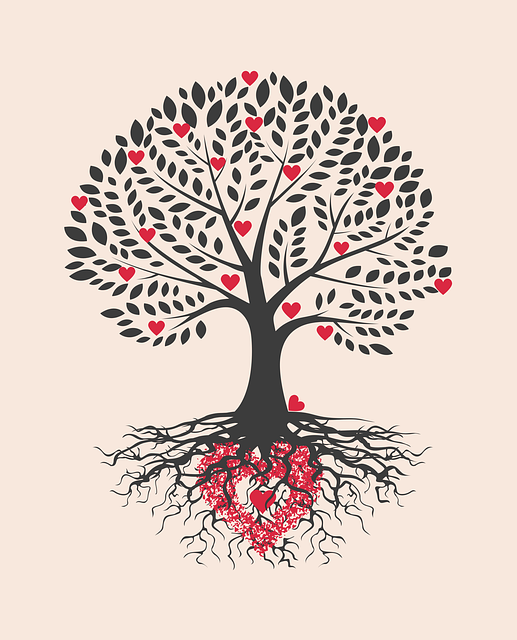
What’s your opinion on Climate Change?
We encourage members to leave helpful advice for we can all contribute and learn from one another.
Together, we can make a positive difference!
Let’s Co-Create a beneficial page about Climate Change to help humanity thrive.

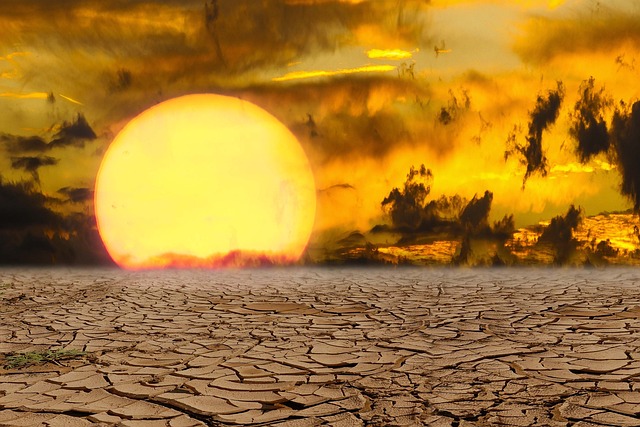
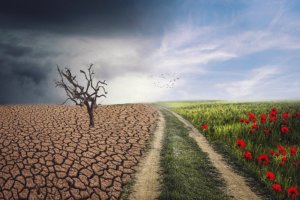
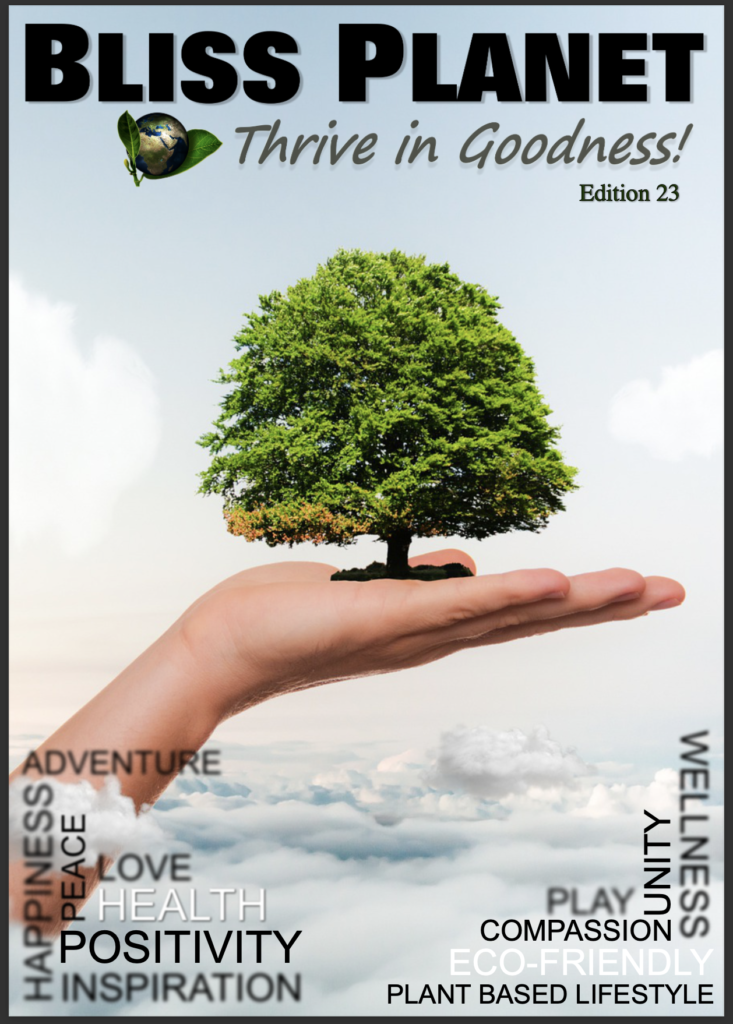



Here are the top 10 climate change questions, with answers:
What is climate change?
Climate change is a long-term change in the average weather patterns that have come to define Earth’s local, regional and global climates. These changes have a broad range of observed effects that are synonymous with the term. Climate change is a significant and lasting change in the statistical distribution of weather patterns over periods ranging from decades to millions of years. It may be a change in average weather conditions, or in the distribution of weather around the average conditions (i.e., more or fewer extreme weather events). Climate change is caused by factors that include oceanic processes (such as oceanic circulation), variations in solar radiation received by Earth, plate tectonics and volcanic eruptions, and human-induced alterations of the natural world; these latter effects are currently causing global warming, and “climate change” is often used to describe human-specific impacts.
What is the difference between climate change and global warming?
The term “global warming” is often used interchangeably with “climate change,” but the two terms refer to distinct aspects of climate change. Global warming refers to the long-term rise in Earth’s average surface temperature. Climate change refers to the broader shifts in temperature and typical weather patterns in a place. These shifts may be caused by factors that include global warming, natural variability, or human activities.
What are the causes of climate change?
The main causes of climate change are human activities that release greenhouse gases into the atmosphere. Greenhouse gases trap heat from the sun, which warms the planet. The main greenhouse gases are carbon dioxide, methane, nitrous oxide, and ozone. Human activities that release greenhouse gases include burning fossil fuels, deforestation, and agriculture.
What are the effects of climate change?
The effects of climate change are already being felt around the world. These effects include rising sea levels, more extreme weather events, changes in agricultural yields, and loss of biodiversity. Climate change is a serious threat to the planet and its inhabitants.
What can we do to prevent climate change?
There are a number of things that can be done to prevent climate change. These include reducing greenhouse gas emissions, investing in renewable energy sources, and adapting to the effects of climate change that are already happening.
Reducing greenhouse gas emissions can be achieved by switching to cleaner energy sources, such as solar and wind power, and by improving energy efficiency. Investing in renewable energy sources can help to reduce our reliance on fossil fuels, which are a major source of greenhouse gases. Adapting to the effects of climate change that are already happening can include building sea walls to protect coastal communities from rising sea levels, and developing drought-resistant crops.
How much will it cost to prevent climate change?
The cost of preventing climate change will depend on the actions that are taken. Some estimates suggest that it will cost trillions of dollars to transition to a low-carbon economy. However, the cost of inaction may be even higher. The economic and social costs of climate change could be devastating, including loss of life, property damage, and disruptions to food and water supplies.
What are the benefits of preventing climate change?
The benefits of preventing climate change are many. These include a cleaner environment, improved public health, and a more stable economy. Preventing climate change can also help to protect our natural resources, such as forests and oceans.
What are the challenges of preventing climate change?
There are a number of challenges to preventing climate change. These include the need for international cooperation, the need to change our lifestyles, and the need to invest in new technologies. However, the challenges of preventing climate change are not insurmountable. With the right policies and investments, we can make a difference.
What is being done to prevent climate change?
A number of countries and organizations are taking action to prevent climate change. These include the United States, the European Union, and the United Nations. These countries and organizations are working to reduce greenhouse gas emissions, invest in renewable energy sources, and adapt to the effects of climate change.
What can I do to prevent climate change?
There are a number of things that you can do to prevent climate change. These include:
By taking these actions, you can make a difference.
Climate change is real, and it’s happening right before our eyes. The planet is experiencing unprecedented levels of change, with rising temperatures, melting ice caps, and extreme weather events becoming more frequent. But the good news is that we can all make a positive difference. By coming together and taking action, we can protect the planet for future generations.
One way to make a difference is by reducing our carbon footprint. This can be achieved in many ways such as driving less or using public transportation, eating less meat, conserving energy at home by turning off lights and unplugging appliances when not in use, using reusable bags instead of plastic ones while shopping among others. We can also support businesses that are committed to sustainability practices or investing in renewable energy sources. By making these small but impactful changes to our daily lives we become part of the solution rather than part of the problem.
Let’s Stop Polluting the Earth with Vegan, Plant-Based Strategies
The earth is in peril, and it’s up to us to take action and make a change. Pollution is one of the biggest threats to our planet, and it’s time we start taking steps to reduce our impact. One of the most effective ways to do this is by transitioning to a vegan, plant-based diet. Not only is it better for the environment, but it’s also better for our health and the well-being of animals.
Eco-Friendly Strategies
There are many eco-friendly strategies that we can implement to reduce our impact on the environment. One of the most effective is to reduce our consumption of animal products. Animal agriculture is one of the leading causes of deforestation, greenhouse gas emissions, and water pollution. By reducing our consumption of meat, dairy, and eggs, we can significantly reduce our carbon footprint and help protect the planet.
Another eco-friendly strategy is to reduce our use of single-use plastics. Plastic pollution is a major problem, and it’s estimated that there are over 5 trillion pieces of plastic in the world’s oceans. By using reusable bags, water bottles, and containers, we can significantly reduce our plastic waste.
Transitioning to a Meatless Diet
Transitioning to a meatless diet can seem daunting, but it’s actually easier than you might think. There are many delicious plant-based alternatives to meat, dairy, and eggs that are readily available in grocery stores and restaurants. Some popular options include tofu, tempeh, seitan, and plant-based milk and cheese.
One of the best ways to start transitioning to a meatless diet is to start slowly. Start by incorporating more plant-based meals into your diet and gradually reducing your consumption of animal products. You can also try meatless Mondays or other similar initiatives to help you get started.
Learn More about Vegan Living
You Are Making a Positive Difference
By transitioning to a vegan, plant-based diet, you are making a positive difference in the world. Not only are you reducing your impact on the environment, but you’re also helping to reduce animal suffering and improve your own health.
Studies have shown that a plant-based diet can help reduce the risk of chronic diseases such as heart disease, diabetes, and certain types of cancer. It’s also been shown to improve overall health and increase longevity.
In addition to the health benefits, a plant-based diet is also better for the well-being of animals. Animal agriculture is one of the leading causes of animal cruelty, and by reducing our consumption of animal products, we can help reduce the demand for these products and improve the lives of animals.
It’s time we start taking action to reduce our impact on the environment and protect the planet. Transitioning to a vegan, plant-based diet is one of the most effective ways to do this. By implementing eco-friendly strategies, transitioning to a meatless diet, and making a positive difference, we can help create a healthier, more sustainable world for ourselves and future generations.
As climate change continues to worsen, it’s important that we take action to help heal the planet. One of the greatest things we can do is adopt a vegan lifestyle. Not only is this better for our own health, but it also helps to reduce our carbon footprint and protect the environment.
Eating a plant-based diet is one of the most effective ways to combat climate change. Livestock farming produces huge amounts of methane, which is a potent greenhouse gas that contributes significantly to global warming. By choosing veganism, we can dramatically reduce our personal contribution to these emissions and help slow down climate change.
Furthermore, adopting a vegan lifestyle means reducing deforestation and preserving natural habitats for animals and plants. It means using fewer resources like land and water since animal agriculture requires much more than plant-based farming does. So why not make the switch today?